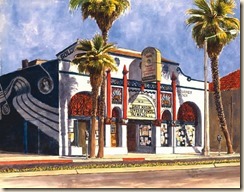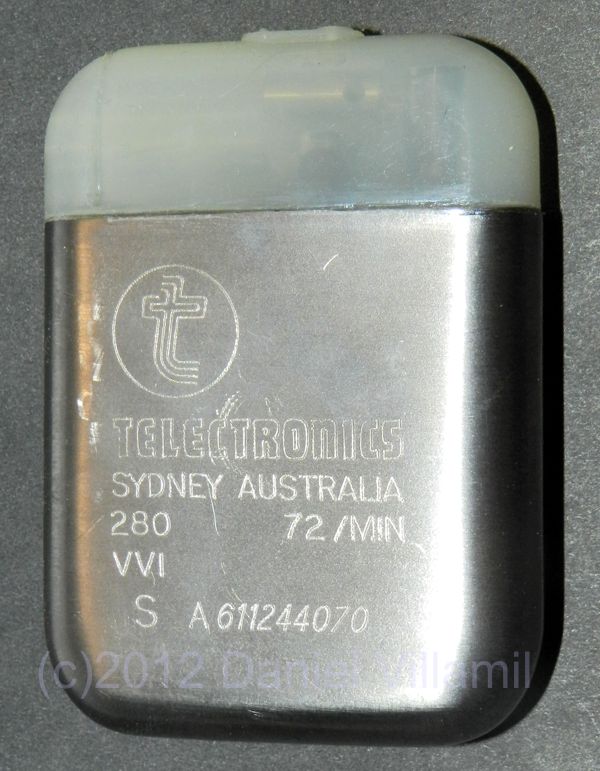
One of the things I looked forward to when I moved to California was getting to hear the Crusaders play, since they rarely toured by the early 80’s. We moved to Huntington Beach, a few blocks from the
Golden Bear where I was privledged to see my favorite group so often that it became a regular expectation. When we moved to Red Wing, MN I had slightly lower expectations, but one of them was that I hoped to see Leo Kottke in the Sheldon Theater.
Friends and neighbors from our old home in Little Canada had told us that hearing Leo in this small, acoustically excellent theater was one of the most amazing musical things they’d ever experienced. I’ve been a fan of Mr. Kottke’s music for forty years and a friend of mine, Scott Rivard, was the engineer for Leo’s first record (A 1976 release titled “Leo Kottke.), so this seemed like a fairly reasonable expectation. Little did I know that Leo had an unpleasant experience at the Sheldon a few years back and had made it clear he wasn’t coming back again. Lucky for me, the present Production Manager for the Sheldon, Russell Johnson, had cleared up that muck and restored Leo’s confidence in the theater.

Back in September of 2015, when I saw the Leo Kottke concert on the Sheldon’s 2016 schedule, I signed up to be part of the “crew” for this show. The crew was me, Russell, and one of the part time Sheldon employees, plus Leo’s son-in-law.
When Mr. Kottke and his son-in-law, Dennis, arrived, I directed them to the stage and Russell introduced me. We had a mutual acquaintance, Scott Rivard, whose work we both admired. Scott engineered Leo’s first record and I worked with Scott at McNally Smith College of Music. I also knew Scott, a bit, from earlier encounters when he was with Minnesota Public Radio and was the recording engineer for many of Garrison Keilor’s programs. Leo had some very generous and insightful thoughts about his experience working with Scott. It seemed like a good start.
Days before the show, Russell had warned me that Leo liked to experiment during his sound check. At my suggestion, Russell had setup the Sheldon’s pair of
Earthworks condensers, but expected we might not get to use them. On cue, the experiments began with a new toy Leo had acquired, a
Grace “Felix Instrument & Microphone Preamplifier/Blender.” He was hoping to use the Grace preamp to combine his six-string and twelve-string guitars' piezo and magnetic pickups into something resembling a guitar sound. He fooled with that preamp for about 45 minutes, obtaining a tolerable electric pickup sound and the volume he wanted in the room. It wasn’t bad, but it wasn’t great. He switched to his standby Countryman DI for the 12-string and decided to stick with that, with the Grace on the 6-string. After a few minutes with the Countryman, he decided all of the time he’d put into the Grace’s setup had been a pointless exercise. So, the plan was to use the Countryman DI on both guitars. Russell asked if Leo wanted me to strike the microphones. Leo said, “No, I’d still like to hear them.” He put away some of his gear and we trucked his guitars to the chair in the middle of the stage.
I removed the line for the Grace pre and positioned one of the Sheldon’s
SR30 Earthworks where I thought it would best replicate the sound I heard Leo going for with his preamplifier. Leo said, “That’s where I always put the mic.” He asked Russell to kill the pickup (through his Countryman DI) so he could hear the mic alone. Leo didn't want a monitor, so he was listening to the mains a bit off-axis from the stage. We had two of the Earthworks out, but one was positioned for his voice. So Russell just brought up the volume of the mic I’d just positioned. Leo played for a few minutes and said, “I don’t know why I mess with pickups. What do you think?”
Everyone agreed that he sounded amazing through the mic only. Leo and Russell experimented a bit with a blend of his magnetic pickup and the microphone which didn’t do significant harm to the tone. After a bit, Leo looked at me and said, “What do you think, Tom?”
“The more mic, the better. Nothing beats a great microphone on a great acoustic guitar.”
Leo started another song, while I was back at the console with Russell trying to figure out where DiGiCo hid the phase switch on the virtual channel modules. The mic was too close and Leo was used to choking-up on the mic for the usual gain-before-feedback (plus to-hell-with-sound-quality-I-want-it-loud) reasons. Russell asked me to reposition the mic to avoid some of the plosive and sibilance sounds. I pulled the mic back about a foot from Leo’s mouth and dropped it till it was a few inches above the top of his guitar, slanted toward his face and off axis of the guitar. Leo looked at me as if I were more than slightly crazy.
I said, “Without a stage monitor and at this system volume, feedback won’t be a problem. I think you’ll be more comfortable and I know you’ll sound great. If you don’t like it, I’ll get a regular vocal mic and we can go close.”
He started the song again and liked it a lot. Again, he asked what everyone else thought. We all agreed that he sounded incredible and that the system was dialed in.
During the show, rarely, Leo occasionally and habitually leaned in toward the mic and was rewarded with a small plosive burst. He started turning those moments into part of his routine and got a some laughs out of it. However, he worked that pair of microphones like the studio professional he is and turned in an incredible show.
Not only did I get to accomplish one of the goals I’d set for moving to Red Wing, but I got to know (a little) one of the artists I’ve admired for four decades. It was one of the most rewarding and musical evenings I’ve enjoyed in my 50+ years in music. Leo Kottke’s willingness to experiment coupled with his over-riding goal of producing the best sounding show possible was inspiring.
 I’m obviously vitamin-starved. At the last Fair Trade Book Store open mic, I blew off my usual mediocre acoustic guitar piece and brought my MacBook Pro to demonstrate a vintage musical piece to the small group of musicians and musical kids. My wife warned me to “keep it short,” so I wouldn’t bore anyone (meaning her). I did my best to make it brief, but mostly what I pointed out to myself was how much I miss having a few friends to talk about recording, recording technology, and music.
I’m obviously vitamin-starved. At the last Fair Trade Book Store open mic, I blew off my usual mediocre acoustic guitar piece and brought my MacBook Pro to demonstrate a vintage musical piece to the small group of musicians and musical kids. My wife warned me to “keep it short,” so I wouldn’t bore anyone (meaning her). I did my best to make it brief, but mostly what I pointed out to myself was how much I miss having a few friends to talk about recording, recording technology, and music.  25 years ago, I quit my last full-time music industry job and found work in medical devices. Admittedly, too much of my motivation was money. Eventually, it turned into lots of money. While the money was good, one of the first things I noticed about the people I worked with was “this is not my culture.” While there were a few outdoor recreation types in Engineering, most everyone in medical devices and medicine was focused on making money, getting promotions, and acquiring stuff. I could easily go for months without hearing anyone hum atonally to themselves, let alone sing or play a musical instrument. I felt a little like a Stranger in A Strange Land. Or a lot.
25 years ago, I quit my last full-time music industry job and found work in medical devices. Admittedly, too much of my motivation was money. Eventually, it turned into lots of money. While the money was good, one of the first things I noticed about the people I worked with was “this is not my culture.” While there were a few outdoor recreation types in Engineering, most everyone in medical devices and medicine was focused on making money, getting promotions, and acquiring stuff. I could easily go for months without hearing anyone hum atonally to themselves, let alone sing or play a musical instrument. I felt a little like a Stranger in A Strange Land. Or a lot. 


